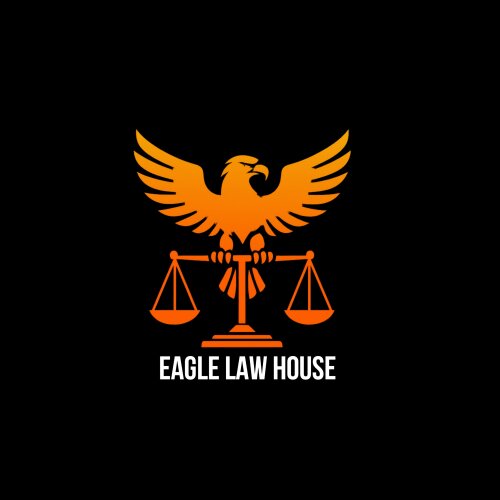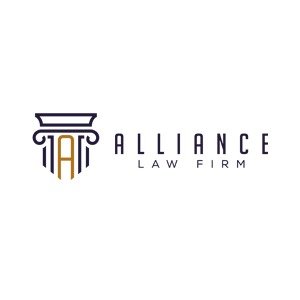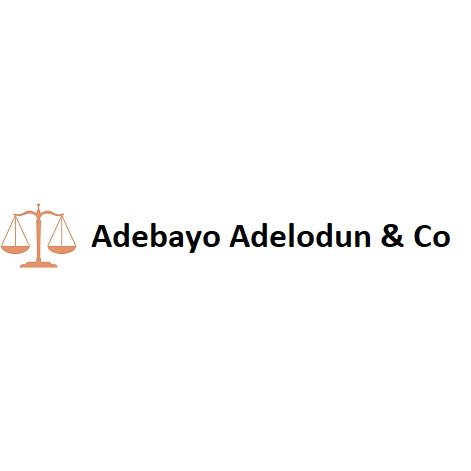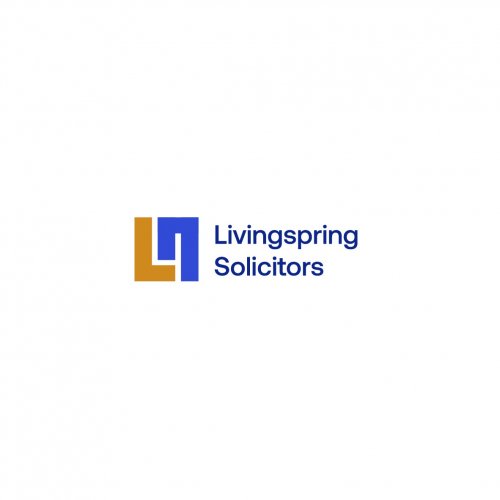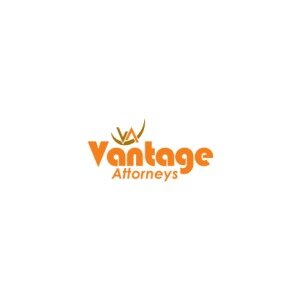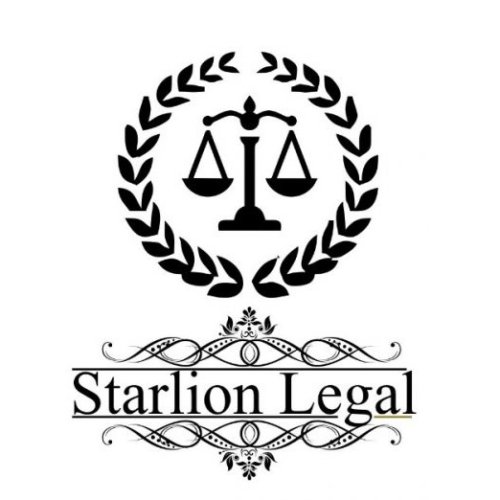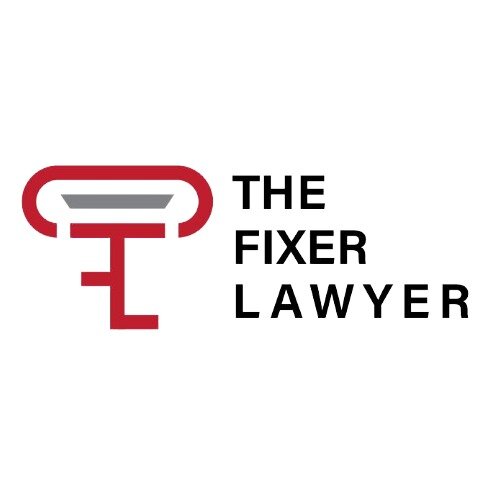Best Nonprofit & Charitable Organizations Lawyers in Abuja
Share your needs with us, get contacted by law firms.
Free. Takes 2 min.
List of the best lawyers in Abuja, Nigeria
About Nonprofit & Charitable Organizations Law in Abuja, Nigeria
Nonprofit and charitable organizations in Abuja, Nigeria, play a vital role in addressing social, economic, and environmental issues. These entities are established to pursue not-for-profit objectives and reinvest any surplus revenue back into their mission. They come in various forms, including non-governmental organizations (NGOs), community-based organizations (CBOs), and faith-based organizations (FBOs). The legal framework governing nonprofit and charitable organizations ensures that these institutions operate transparently, ethically, and in alignment with both their stated objectives and the public interest.
Why You May Need a Lawyer
There are several situations where legal expertise is essential for nonprofit and charitable organizations in Abuja:
- Establishment and Registration: Navigating the legal requirements for setting up a nonprofit can be complex. A lawyer can ensure all paperwork is correctly filed with the appropriate regulatory bodies.
- Compliance Issues: Nonprofits must adhere to various laws and regulations. Legal assistance ensures they comply with tax laws, licensing requirements, and reporting duties.
- Contracts and Agreements: When entering into agreements or partnerships, legal advice can help draft and review contracts to safeguard the organization’s interests.
- Employment Matters: Nonprofit organizations must navigate employment law, including contracts, disputes, and regulatory compliance concerning personnel management.
- Dispute Resolution: Legal issues may arise with donors, beneficiaries, or other third parties. A lawyer can help resolve these disputes amicably or through legal channels.
Local Laws Overview
Operating a nonprofit in Abuja involves adherence to several key local laws, including:
- Companies and Allied Matters Act (CAMA) 2020: This is the primary legal framework for establishing and managing nonprofit organizations. It includes guidelines on registration, governance, and operational transparency.
- Tax Laws: Charitable organizations may qualify for tax exemptions, but this status requires strict compliance with the Federal Inland Revenue Service (FIRS) regulations.
- Employment Act: Nonprofits must comply with employment laws related to labor practices, employment contracts, and employee rights.
- Financial Reporting: Nonprofits are usually required to maintain transparent financial records and submit periodic financial statements to relevant authorities.
- Anti-Corruption and Regulatory Compliance: Organizations must adhere to anti-corruption measures to prevent misuse of funds or resources, compliant with bodies such as the Economic and Financial Crimes Commission (EFCC).
Frequently Asked Questions
What is the process for registering a nonprofit organization in Abuja?
To register a nonprofit, you must apply to the Corporate Affairs Commission (CAC) with required documents, including your organization’s constitution, objectives, and trustee information.
Are nonprofit organizations in Abuja eligible for tax exemptions?
Yes, if registered correctly and operating for charitable purposes, nonprofits can apply for tax exemptions from the Federal Inland Revenue Service (FIRS).
What governance structures do nonprofits need to comply with in Abuja?
Nonprofits must establish a board of trustees, maintain proper accounting records, and produce annual financial reports and audits in line with CAMA regulations.
Can a nonprofit engage in commercial activities?
Nonprofits can engage in income-generating activities, provided the income is used to further their charitable goals and not distributed as profit to members or trustees.
What are the legal requirements for foreign NGOs operating in Abuja?
Foreign NGOs must register with the Ministry of Budget and National Planning and comply with national laws while operating within Nigeria.
How can a nonprofit protect itself against fraud and corruption?
Implementing strong internal controls, regular audits, and adherence to anti-corruption laws are crucial for preventing fraud. Legal advice is beneficial for setting up these mechanisms.
What are the reporting requirements for nonprofits in Abuja?
Nonprofits must submit annual financial reports, comply with statutory audits, and report any significant changes in operations to regulatory bodies like the CAC.
How do regulatory bodies enforce compliance in nonprofit organizations?
Regulatory bodies conduct audits, inspections, and reviews. Noncompliance can lead to fines, suspension, or deregistration.
What should a nonprofit know about hiring employees?
Nonprofits must provide fair employment contracts, adhere to labor laws, ensure workplace health and safety, and manage payroll taxes appropriately.
Can a nonprofit's registration be revoked, and under what circumstances?
Yes, the CAC can revoke registration due to noncompliance, fraudulent activities, or if the organization no longer serves the public interest as initially declared.
Additional Resources
For further assistance or information, consider exploring the following resources:
- Corporate Affairs Commission (CAC): The agency responsible for registering nonprofits in Nigeria.
- Federal Inland Revenue Service (FIRS): For guidance on tax exemptions and compliance.
- Ministry of Budget and National Planning: Overseeing the registration and operations of foreign NGOs.
- Economic and Financial Crimes Commission (EFCC): To combat corruption and ensure compliance with national anti-corruption policies.
- Local Law Firms: Firms specializing in nonprofit law can provide personalized legal advice specific to your organization’s needs.
Next Steps
If you require legal assistance for your nonprofit or charitable organization in Abuja, consider taking the following steps:
- Consult a Specialist Lawyer: Engage a legal professional with expertise in nonprofit law to guide you through legal complexities.
- Education and Training: Attend workshops or training sessions on nonprofit management and legal compliance.
- Network: Connect with other nonprofits to share experiences and learn from their challenges and successes.
- Stay Informed: Keep abreast of changes in laws and regulations affecting nonprofit organizations by subscribing to relevant newsletters or joining professional groups.
Lawzana helps you find the best lawyers and law firms in Abuja through a curated and pre-screened list of qualified legal professionals. Our platform offers rankings and detailed profiles of attorneys and law firms, allowing you to compare based on practice areas, including Nonprofit & Charitable Organizations, experience, and client feedback.
Each profile includes a description of the firm's areas of practice, client reviews, team members and partners, year of establishment, spoken languages, office locations, contact information, social media presence, and any published articles or resources. Most firms on our platform speak English and are experienced in both local and international legal matters.
Get a quote from top-rated law firms in Abuja, Nigeria — quickly, securely, and without unnecessary hassle.
Disclaimer:
The information provided on this page is for general informational purposes only and does not constitute legal advice. While we strive to ensure the accuracy and relevance of the content, legal information may change over time, and interpretations of the law can vary. You should always consult with a qualified legal professional for advice specific to your situation.
We disclaim all liability for actions taken or not taken based on the content of this page. If you believe any information is incorrect or outdated, please contact us, and we will review and update it where appropriate.



